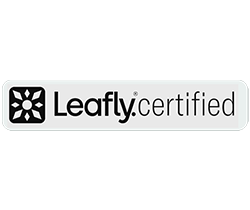 Cannabis testing regulations continue to be developed and refined as states grapple with how to provide adequate oversight and ensure safety of legalized marijuana. Some states have instituted medical marijuana testing regulations, while others mandate testing for recreational use as well. Other states have no laws regarding cannabis testing yet.
Cannabis testing regulations continue to be developed and refined as states grapple with how to provide adequate oversight and ensure safety of legalized marijuana. Some states have instituted medical marijuana testing regulations, while others mandate testing for recreational use as well. Other states have no laws regarding cannabis testing yet.
Cannabis testing will play an increasingly important role in the business of medical and recreational marijuana cultivation, as the formal regulations come down from state legislators and perhaps, in the future, federal lawmakers.
Cannabis testing regulations in Florida
Senate Bill 8A in the State of Florida requires that:
- All medical marijuana must be tested in a third-party medical marijuana testing laboratory and reviewed by two medical marijuana treatment center employees before it is dispensed to patients.
- The laboratory must be an independent third party, with no affiliations to doctors, caregivers, or patients.
- Laboratory results indicate that the concentration of tetrahydrocannabinol meets potency requirements; the labeling for tetrahydrocannabinol and cannabidiol concentration is accurate; and all marijuana is safe for human consumption and free from harmful contaminants.
- The maximum levels for each contaminant will be overseen by the Department of Agriculture and Consumer Services. The department may, at times, select random samples from edibles available for purchase in dispensing facilities to test for potency, safety, and labeling accuracy.
- Medical marijuana treatment centers must pay for their own sample testing and recall any items that do not meet standards for potency, safety, and accurate labeling.
- Medical marijuana treatment centers must retain records of test results for each homogeneous batch of marijuana dating back at least nine months.
- Medical marijuana treatment centers must contract with a third party medical marijuana testing lab to perform audits on their standard operating procedures, sampling, and testing records to confirm that the results are pure. Two processed samples from each batch should be retained for at least nine months in case an audit is requested.
As of July 1, 2018, Title XXIX in the Florida State Public Health Statutes mandates that marijuana treatment centers MUST use laboratories that have been certified by the Florida Department of Health under Statute 381.988. These marijuana testing laboratories conform to regulations that are currently being developed by the Department of Agriculture and Consumer Services, as well as the Department of Environmental Protection. Updated guidelines are expected to cover:
- Security standards for the laboratory
- Minimum standards for all personnel
- Sample collection methods and processing standards
- Proficiency testing for THC potency, concentration of cannabidiol, and contaminants
- Reporting content, format, and frequency
- Audit and onsite inspection protocol
- Quality assurance program development and implementation
- Equipment and methodology for conducting tests
- Proper chain of custody
Furthermore, certified labs can prove there is no conflict of interest with medical marijuana treatment centers. Lab personnel agree that they will not sell, distribute, or otherwise transfer marijuana received from a marijuana treatment center. Samples may be transferred to another testing laboratory if the situation warrants, but must otherwise all samples received after the period of storage has elapsed must be properly disposed of. The lab must possess proof of proper accreditation or certification. All owners and managers can pass a level 2 background screening and submit to fingerprinting, as required by the Department of Law Enforcement. All Florida marijuana testing facilities will use a state computer software tracking system that traces marijuana from seed to sale in real-time.
Testing regulations in other states
In Colorado: New medical and recreational marijuana testing regulations went into effect July 1st, 2016. Testing is required for E. Coli, Salmonella, Yeast, Mold, residual solvents, and filth. THC potency must not vary more than 15 percent of the labeled levels. Potency testing must also include levels of THCA, CBD, CBDA, and CBN. Four samples of each strain must be sent by the cultivator, one week apart, with additional samples tested again once every six months thereafter. Annual validation of process testing for contaminants must be done. Labs undergo proficiency testing to demonstrate knowledge of testing flower potency, and compliance with Colorado Department of Public Health and Environment protocols.
In California: Marijuana testing is overseen by the Bureau of Marijuana Control. A new 46-page plan details regulations covering everything from what clothing lab technicians can wear when collecting cannabis samples, to what level of pesticides are considered “safe” in a cannabis sample. According to the proposal, labs will have to test for homogeneity, analytes, cannabinoids, residual solvents, microorganisms, pesticides, heavy metals, mycotoxins (like aflatoxin), water activity and moisture content, and the presence of filth and foreign material. They must report, in milligrams, the concentration of THC, THCA, CBD, CBDA, CBG, and CBN. Samples “pass” if they do not stray from the stated levels by greater than 15 percent. Labs are encouraged, but not mandated, to test for terpenes. Labs must report the presence of acephate, butane, Salmonella, arsenic, and mold. These new rules for medical marijuana testing in laboratories are expected to start in 2018.
Cannabis state testing regulations
More state cannabis testing regulations include:
- Alaska Administrative Code: 3 AAC 306. Alaska Statutes: AS 17.38
- Arizona Revised Statutes A.R.S. §36-2801
- California’s Medical Cannabis Regulation and Safety Act: Assembly Bill 266, Assembly Bill 242, Senate Bill 643, and Proposition 64 (overseen by the Bureau of Medical Cannabis Regulation)
- Colorado Revised Statutes: Medical Marijuana Code: C.R.S. 12-43.3-101, Retail Marijuana Code: C.R.S. 12-43.4-101
- Connecticut General Statutes: Chapter 420f Section 21a-408
- Delaware’s Title 16 Health And Safety Delaware Administrative Code: 4470 State of Delaware Medical Marijuana Code
- C. Regulations Act 13-138, “Legalization of Marijuana for Medical Treatment Initiative of 1998”
- Hawaii Revised Statutes Chapter 329-121 to 329-128
- Illinois’ Administrative Code: Title 8 Chapter 1 Part 1000 Compassionate Use Of Medical Cannabis Pilot Program
- Maine Revised Statutes Title 22 Chapter 558-C: Maine Medical Use Of Marijuana Act
- Code of Maryland Regulations (COMAR): Title 10, Subtitle 62 Natalie LaPrade Medical Cannabis Commission
- Commonwealth of Massachusetts Regulations: 105 CMR 725.000 Implementation Of An Act For The Humanitarian Medical Use Of Marijuana
- Michigan Compiled Laws: Section 333.26424 Michigan Medical Marihuana Act
- Minnesota Administrative Rules Chapter 4700, Medical Cannabis
- Montana Marijuana Bill (SB0333)
- Nevada Revisited Statutes Chapter 453A Medical Used of Marijuana
- New Hampshire Revised Statutes: 126-X:10 Use Of Cannabis For Therapeutic Purposes
- New Jersey Administrative Code (N.J.A.C.) 8:64, New Jersey Statutes Annotated (N.J.S.A.) 24:6I
- Lynn and Erin Compassionate Use Act, N.M. Stat. Ann. § 30-31C-1, N.M. Stat. Ann. §26-2B-3(F)
- Compassionate Care Act, New York Codes, Rules and Regulations: Volume D Title 10 Part 1004 Chapter XIII – Medical Use of Marihuana
- North Dakota Senate Bill 2344, Statutory Measure No. 5
- Ohio Revised Code (O.R.C.) 3796
- Oregon Administrative Rules: OAR 333-007-0300, OAR 333-007-2000, OAR 333-064-0100 & OAR 333-064-0110)
- The State of Rhode Island General Laws R21-28
- Revised Code of Washington (RCW) Title 69 Chapter 69.51A
Cannabis testing standards
Modern Canna Science keeps abreast of the emerging guidelines for cannabis testing standards in every state. We’ve been busy securing every possible accreditation that could become the next universal standard.
Our Florida laboratory is in compliance with all state statutes and Department of Health regulations. Our testing standards comply with the Medical Cannabis Recreation Safety Act (MCRSA) and the Adult Use of Marijuana Act (AUMA).
We follow recommendations made by the Cannabis Safety Institute that state the scope of testing must include precise identification and quantitation of:
- Pesticides (based on AOAC Official Method 2007.01).
- Cannabinoids such as THC, THCA, CBD, and CBDA (with extraction methods for edibles).
- Bacteria and fungi (as specified in state guidelines).
- Volatile Organic Compounds and residual solvents.
- Water activity (which indicates support — or lack thereof — for microbial growth).
- Terpenes (to identify the unique characteristics of the strain).
The Modern Canna Science labs are fully equipped with advanced instrumentation for gas chromatography, along with sample derivatization; Flame Ionization Detection; UV detection; ultrasonic extraction; High Resolution Mass Spectrometry; and High Performance Liquid Chromatography (HPLC). Our skilled scientific staff includes chemists with several years of experience specific to analytical chromatography.
Contact Modern Canna Science to consult with a high-tech laboratory that is setting the gold standard for medical cannabis quality assurance and control in Florida.
Additional “cannabis testing regulations” resources:
- Cannabis Safety Institute – Standards for Cannabis Testing Laboratories, http://cannabissafetyinstitute.org/wp-content/uploads/2015/01/Standards-for-Cannabis-Testing-Laboratories.pdf
- GenTech Scientific – Cannabis Testing Regulations, http://gentechscientific.com/cannabis-testing/cannabis-testing-regulations
- Florida Senate – Bill 8A, https://www.flsenate.gov/Session/Bill/2017A/8A/BillText/er/HTML
- Cannabis Business Times – Colorado Medical Testing Requirements, http://www.cannabisbusinesstimes.com/article/cbt-062716-colorado-medical-testing-requirements/
- The Cannifornian – State lays out proposed rules for cannabis testing in California, http://www.thecannifornian.com/cannabis-news/politics/state-lays-proposed-rules-cannabis-testing-california/
- Florida State Legislation – Medical Marijuana Statutes, http://www.leg.state.fl.us/statutes/index.cfm?App_mode=Display_Statute&URL=0300-0399/0381/Sections/0381.986.html
- Florida Sun-Sentinel – Medical Marijuana Bill Passes in Florida Legislature, http://www.sun-sentinel.com/news/politics/florida-politics-blog/fl-reg-medical-marijuana-passes-20170609-story.html
- Merry Jane – The Complex World of Marijuana Testing and Lack There Of, https://merryjane.com/culture/the-complex-world-of-cannabis-lab-testing-ethics-regulations-and-lack-there-of


